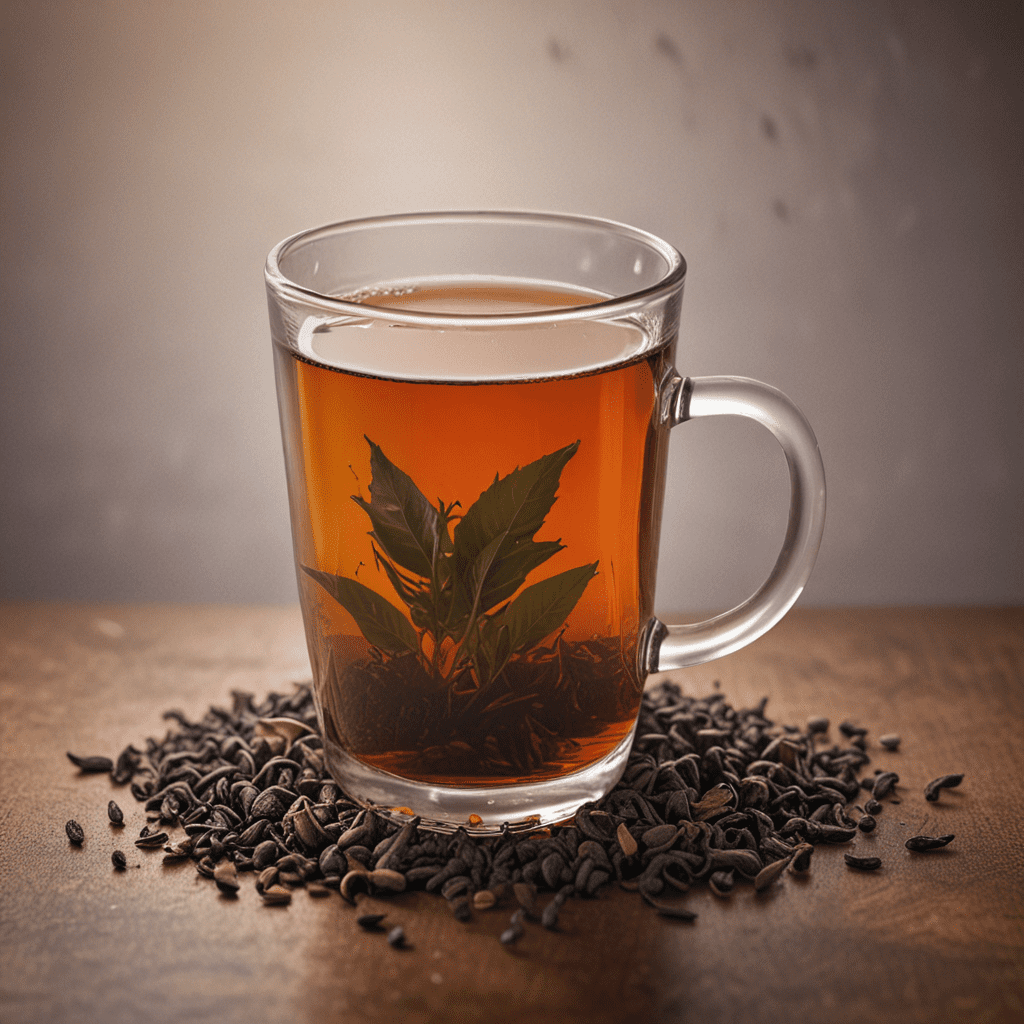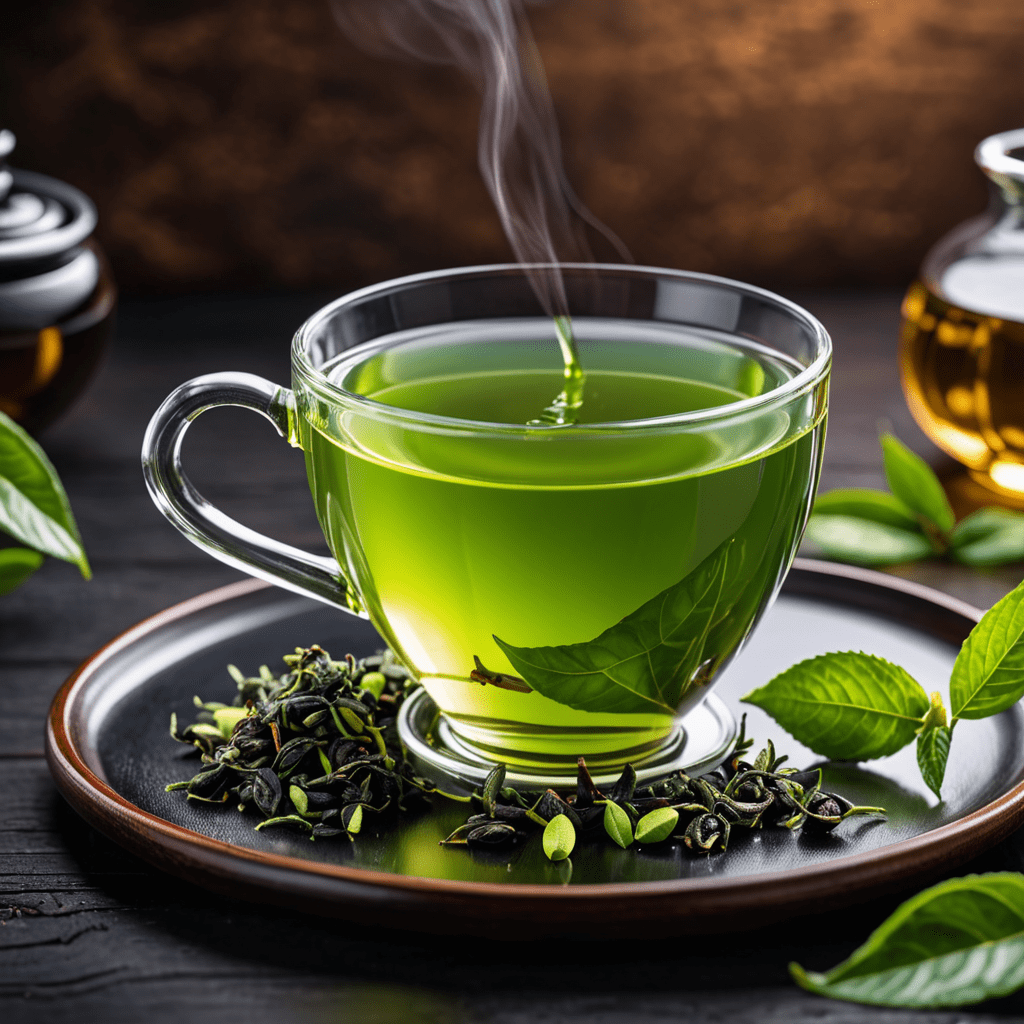Introduction
Assam tea, an aromatic beverage originating from the lush lands of Assam in northeastern India, is renowned worldwide for its bold flavor and distinctive malty notes. This delightful brew, celebrated for its invigorating qualities and numerous health benefits, has captivated tea enthusiasts for centuries, becoming an integral part of Assam's cultural landscape and a significant contributor to its economy.
The History of Assam Tea
The origins of Assam tea can be traced back to the early 19th century. In 1823, Scottish explorer Robert Bruce discovered wild tea plants growing abundantly in the Brahmaputra Valley. Recognizing the commercial potential of this indigenous species, the British East India Company established the first tea plantations in Assam in 1837. By the mid-19th century, Assam tea had gained widespread popularity both in India and abroad, quickly establishing itself as one of the world's leading tea-producing regions.
The Cultivation of Assam Tea
Assam tea is primarily grown in the Brahmaputra Valley, an alluvial plain with a subtropical climate and rich, well-drained soil ideal for tea cultivation. The tea plants, scientifically classified as Camellia sinensis var. assamica, are known for their large leaves and vigorous growth. The cultivation process involves meticulous care, including regular pruning, pest management, and judicious use of fertilizers. Assam tea is harvested multiple times throughout the year, with the most prized leaves coming from the first flush, which occurs during the spring season.
The Processing of Assam Tea
After harvesting, the tea leaves undergo a series of processing steps to transform them into the finished product. The most common method is the CTC (crushing, tearing, and curling) process, which produces a bold, full-bodied tea with a strong malty flavor. Other processing methods include orthodox processing, which results in whole-leaf teas with a more delicate flavor profile. The processed tea leaves are then graded according to size and quality before being packaged for sale.
The Types of Assam Tea
Assam tea is available in a wide range of varieties, each with its own unique flavor and characteristics. Some of the most popular types include:
Assam Black Tea: The classic Assam tea, known for its strong, malty flavor and invigorating aroma.
Assam Green Tea: A milder, more delicate tea with a slightly sweet and grassy flavor.
Assam Oolong Tea: A semi-oxidized tea that combines the bold flavor of black tea with the floral notes of green tea.
- Assam White Tea: The least processed type of Assam tea, with a light, delicate flavor and subtle sweetness.
The Health Benefits of Assam Tea
Assam tea is not only delicious but also packed with numerous health benefits attributed to its high concentration of antioxidants, polyphenols, and other beneficial compounds. These antioxidants help protect the body from damage caused by free radicals, reducing the risk of chronic diseases such as cancer, heart disease, and Alzheimer's. Assam tea has also been shown to improve cognitive function, boost the immune system, and promote gut health. Its caffeine content provides a gentle energy boost without the jitters associated with coffee, making it an ideal beverage for both morning and afternoon consumption.
The Cultural Significance of Assam Tea
Assam tea holds a special place in Indian culture, particularly in the state of Assam where it is considered a symbol of pride and hospitality. Tea gardens are an integral part of Assam's landscape, providing employment and sustenance to countless families. The tea industry has also played a significant role in shaping the state's social and economic development. Assam tea is often served with milk and sugar, creating a rich and flavorful beverage that complements traditional Assamese cuisine.
The Economic Importance of Assam Tea
Assam tea is a major economic driver for the state of Assam, contributing significantly to its GDP and generating employment for a large portion of the population. The tea industry in Assam employs over one million people, from tea pickers to factory workers and management staff. Assam tea is exported to over 100 countries worldwide, earning valuable foreign exchange for India. The revenue generated from tea exports supports various infrastructure development projects and social welfare programs in Assam.
The Future of Assam Tea
The future of Assam tea looks promising as the global demand for premium teas continues to grow. Assam tea producers are investing in sustainable farming practices, organic certification, and value-added products to cater to the evolving preferences of tea consumers. Research and development efforts are also focused on improving tea quality, yield, and disease resistance. By leveraging its rich heritage and embracing innovation, the Assam tea industry is well-positioned to maintain its position as a leading supplier of high-quality teas in the global market.
FAQs
Q: What is the difference between Assam black tea and Assam green tea?
A: Assam black tea undergoes full oxidation, resulting in a strong, malty flavor, while Assam green tea is minimally oxidized, producing a milder, more delicate flavor.
Q: What is the caffeine content of Assam tea?
A: Assam tea typically contains less caffeine than coffee but more than green tea, providing a moderate energy boost without the jitters.
Q: How do I brew the perfect cup of Assam tea?
A: Use 2-3 grams of tea leaves per 8 ounces of water at a temperature of 200-205°F (93-96°C). Steep for 3-5 minutes, depending on desired strength.
Q: Can I add milk and sugar to Assam tea?
A: Yes, adding milk and sugar to Assam tea is a popular way to enjoy its rich flavor. However, it can alter the taste and health benefits of the tea.
Q: Where can I find Assam tea?
A: Assam tea is widely available in supermarkets, specialty tea shops, and online retailers.



